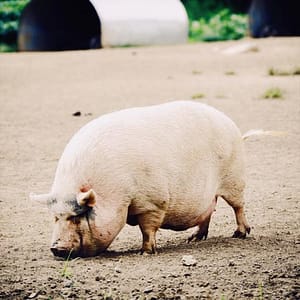Every now and then, I’d meet someone who is curious about my background and ask where I am from. I never know how to answer this because I’m never sure if they’re asking about my race / ethnicity or where I grew up. So, I cover all bases: I’m Chinese, who lived in Sydney, Australia for most of my life. Either way, I’m not fussed about it but this seemingly innocuous question puts many on the defensive. And by many, I mean the non-Caucasians, minorities, or those who have an “ambiguous” appearance as it’s them who usually get asked the question.
A disclaimer
One word: relax! It’s not my intention to pit one race / ethnicity against another or exacerbate stereotypes. Observations here are from my own philosophical musings and provided to encourage conversation, so please feel free to leave a comment at the end of this article. However, if you rather read more about my exciting debut novel instead of getting riled up about this topic, I don’t mind shamelessly plugging Broken.
You speak good English… for a foreigner
Some view the question, “Where are you really from?”, an invasion of privacy that questions their belonging, affiliation, or allegiance to a country or culture. In these folk’s mind, there is an undercurrent of an ever-so-subtle (and sometimes, not-so-subtle) prejudice, whereby the questioner mentally reorders them in society’s unsaid hierarchy depending on where they’re really from, and sometimes the questioner can be condescending when replying without realising.
“Oh, you’re from THAT country? But you speak good English.”
Cue a “WTF!” reaction from the person being asked the question as she tries to hide her annoyance, frustration or upset.
Shoe on the other foot
But what if the shoe was on the other foot? I’ve witness Asian folks say to foreigners that their Chinese, Korean, Vietnamese, [insert whatever foreign language you want] is good. The foreigner would then puff out their chest, beaming with pride, before feigning rehearsed modesty.
“Oh thanks but I’m still working on my pronunciation.”
But when the circumstance is flipped for non-Caucasians, it can prompt a need to justify that they are just as human as the person asking the question, like…
“My parents are from XYZ country, but I was born here.”
It is subtle but I think the above response is an attempt to distance herself from her heritage and gravitate towards the “dominate” culture just so she don’t feel like an outsider. It seem to suggest that:
“Yes, my parents were born in a different country but as for me and myself, I was born in the same country as YOU; the person who is judging me right now.”
But why does she feel the need to justify herself to begin with? I’ve never heard a Caucasian trying to justify where they’re from. I mean, where they’re really from. Is it because she sees the status quo as being “white” that everyone has to assimilate into?
So many questions…
As a result, I have so many questions about this, like…
- Is it all self-talk; a reflection of the minority’s own insecurities, trying to justify that they are just as worthy as the Caucasians?
- How did we end up reading so much between the lines?
- Where does the default assumption that the questioner is judgmental and / or prejudice come from?
- Is it all about fitting in? The need to feel part of a select group? Who said this group, any group for that matter, was select?
I’d be very interested to hear your views. You can leave a comment at the end of this article.
“Really?”
Perhaps it is the emphasis on the word “really” that cause people to narrow their eyes with suspicion. After all, the digging into someone’s personal space when the intention of the questioner isn’t known is most dangerous because the word “really” is usually a follow up to the question, “Where are you from?”. It suggests that the first response wasn’t satisfactory because that ethnic person can’t really be Australian (or [insert whichever country you like]) because she is so obviously not Caucasian. Sure, it might be annoying or frustrating for the person being asked the question, but the real question is whether the questioner is indeed racist or prejudiced. I think that depends on the intention and the context of the conversation.
Intent and context
Unfortunately, mere mortals like us are not telepathic. Oftentimes, we do not know the intention of the questioner but we can (usually) pick up the context of conversation. And this is important.
If the questioner also shows interest in other areas of a person’s life, instead of pigeonholing her with this one question, it’s a good indication that they want to get to know her a little more, and they can do this by asking such things as her hobbies, how many children she has, does she hate her boss as well (I’m kidding, I love you, boss), etc. However, if it is the first thing they ask and won’t let it go until they get a “satisfactory” answer, it may be a good indication that they’re not worth your time.
“But I never get the question from non-Caucasians”
I’ve heard from some that the question, “Where are you really from?”, only ever come from Caucasians which is why these people view the question with suspicion. I can’t say whether that is true or false because I don’t know who they’ve had conversations with but in my experience, non-Caucasians ask the same question.
I know some Asians can be very direct with their questions. It is not uncommon to be bombarded with questions along the lines of: “Where are you from? No, I mean, which part of XYZ country? How much do you earn? Why did you get fat? I only saw you 8 days ago. How come you’re not married yet? You’re not exactly young any more…” and the nag, I mean, inquisition goes on.
So, the question in my mind is whether it is only jarring when certain people / races ask the question because we’re unsure of their intent? Let me know what you think in the comments section at the end of this article.
Curious by nature
People by nature are curious and sometimes, conversations are struck by asking people about their background. I don’t think there is anything inherently bad about this as it can be an indication of empathy, warmth and care from person asking the question. The alternative is to halt all conversation regarding our backgrounds, but it may leave us with making mundane observations about the weather and recycling the tiresome lines about our weekend plans.
An alternative question?
This leads to my next point: is the question itself, “Where are you really from?” disagreeable because it appears to be an indirect way of asking about someone’s race / ethnicity? In any event, is asking about someone’s race and / or ethnicity inherently racist or bad?
Would people feel better if there was a preamble before they asked about a person’s race / ethnicity? What if the question was “What’s your race / ethnicity?” Is that too direct? How would you phrase an alternative question?
Again, I think this depends on the context and the intent of the questioner. Of course, there will always be a small percentage who hold malignant intentions and if that were the case, it wouldn’t matter what the question was, the person would likely be racist, prejudiced, offensive, etc. At which point, no one is forcing you to continue the conversation with them.
Words only have meaning if we let it
Personally, I don’t take offense to the question. By default, I take the question on face value and assume that the questioner is simply trying to connect with me. I’m not saying we should turn a blind eye to racism or be naïve about it but not everyone is racist if they ask, “where are you really from?”
I also don’t feel the need to justify that I speak (relatively!) good English because I’ve lived in Australia before I can remember, the same way I don’t feel the need to have two names: one that my parents gave me and an English name – the latter, to presumably comfort others (but that’s for another blog).
The question only has meaning if you let it and it’s a classic case of control what you can (i.e., your view of yourself) and forget about what you can’t (i.e., the perception of others). Through conversation, you should be able to pick up if the intent of the questioner, and if you feel they are a racist d***, by all means, tell them where to go.








